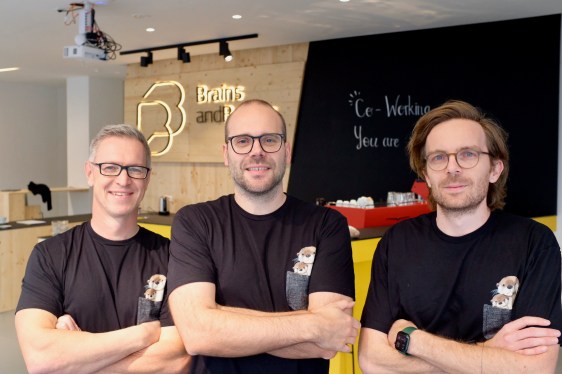Artificial Intelligence Dominates Search Results, Putting Company Websites at Risk, But Otterly.ai Offers Solution
In 2024, many websites witnessed a significant decline in their organic traffic. This decrease is largely attributed to the growing prevalence of AI-generated search results. As users increasingly rely on large language models (LLMs) like ChatGPT and Perplexity, queries no longer lead to click-throughs. Even when users do interact with these apps, companies struggle to gather context about searches made within them.
What is Generative Engine Optimization (GEO)?
The answer to this problem lies in a relatively new field called generative engine optimization, or GEO, a nod to the traditional SEO practices of yesteryear. According to Otterly’s AICEO Thomas Peham, "Some call it AI search visibility optimization, which is a bit longer, but I believe is a bit more accurate."
The Birth of Otterly
Like New York-based competitor Profound, the Austrian startup builds dashboards to help companies and ad agencies monitor and optimize their presence in AI results. However, while Profound remains in closed beta, Otterly has exited stealth mode after surpassing the 1,000-user milestone.
You may have heard of Otterly before; they launched on Product Hunt earlier this year to some success. But then Google shook everything up with the introduction of AI Overviews in May. Peham shared that "To be honest, the reality was we rebuilt the product from scratch after Google introduced AI Overviews."
The Impact of AI Overviews
AI Overviews are Google’s implementation of AI-powered results, often resulting in so-called zero-click searches where users never go beyond the search engine. As AI Overviews starts rolling out globally, companies that relied on organic search traffic are feeling the sting.
Peham provided an example of a SaaS business that saw its organic search presence decline in the U.S., only to realize through Otterly that Google showed AI Overviews search results for half of its SEO keywords. This knowledge gap highlights the need for companies to adapt and optimize their strategies for the new landscape.
Making Knowledge Actionable
The next question is how to make this knowledge actionable, especially when LLMs are often described as a black box. That’s one reason why Otterly plans to add a recommendation engine, and in the meantime, why it went from monthly to weekly tracking – so marketing teams can conduct experiments to optimize their content and quickly see what might be working or not.
While this tinkering is partially akin to SEO, clicks are less of a focus. "I think calling it AI search visibility optimization really highlights the aspect that we as marketing teams also need to think about our brand position, our brand visibility," Peham said.
The Journey of AICEO Thomas Peham
Peham himself spent most of his career in marketing, serving as a former VP of marketing at CMS company Storyblok. He started Otterly to scratch his own itch and understand how ChatGPT was impacting search from a brand perspective. Eventually, he teamed up with two co-founders: Josef Trauner (former CEO at Usersnap) and Klaus M. Schremser (former head of growth at Usersnap).
Having two co-founders helps them all split tasks, with Schremser focusing on the technical aspects and Trauner leading the way in terms of strategy. This collaborative approach has been instrumental in Otterly’s success.
The Future of Generative Engine Optimization
As AI-generated search results continue to rise, companies will need to adapt their strategies to stay ahead of the curve. With Otterly at the forefront of this movement, it will be exciting to see how the field of GEO evolves in the coming months and years.
Conclusion
The shift towards AI-generated search results is a game-changer for companies looking to stay relevant online. Generative engine optimization (GEO) is an emerging field that seeks to address this new landscape. With Otterly leading the charge, it’s clear that this area of expertise will only continue to grow in importance as technology advances.
Recommended Reading:



